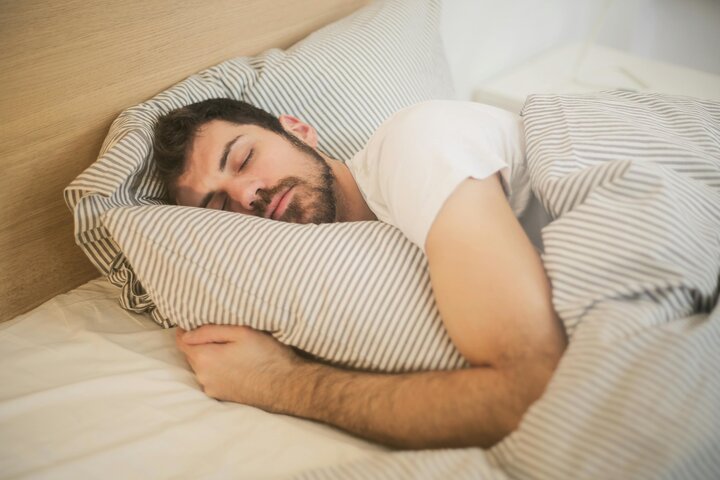
Are you struggling to get a good night's sleep? Nebraska Medicine University Health Center psychiatrist Stephanie Sutton, MD, shares expert tips to enhance your sleep hygiene and improve your overall sleep quality.
What is sleep hygiene?
Sleep hygiene is the practice of creating a healthy sleep environment. It is helpful for everyone to practice good sleep hygiene whether or not they have sleep problems. For those who experience insomnia, sleep hygiene is even more important to prioritize.
What can happen when you don’t get enough sleep?
- Symptoms associated with acute sleep deprivation include irritability, fatigue, poor concentration, impaired retention of information or feeling emotional.
- Chronic sleep deprivation can cause health risks, including mood changes, poor cognition, high blood pressure, heart disease, stroke, high cholesterol, diabetes and weight changes.
What are ways to improve sleep?
Control your caffeine intake.
Caffeine can stay in your system a lot longer than you think, affecting a good night’s sleep. Stop consuming all caffeine (including teas, coffees and sodas) by mid-afternoon. If you need an energy boost later in the day, try a caffeine alternative. Eating a healthy snack, like fruits or vegetables, can be energizing, as can drinking enough water. Another option is to enjoy a quick exercise session, even as simple as a brisk walk.
Nap wisely.
Napping during the day may make nighttime sleep harder. Naps take away "sleep pressure" – the signals in your body that say you need rest. If you fall asleep quickly each night, it's OK to nap. There's even an optimal time to nap: between 1 and 3 p.m. when we are naturally drowsy.
Put the screens away early.
Phones, computers, and TV screens activate your brain. The light from screens is similar to sunlight and signals to your brain that it's time to wake up. Browsing your phone or watching TV before bed makes it harder to fall asleep.
Additional tips for better sleep hygiene include:
- Get up and go to bed at the same time every day.
- Use a calming bedtime routine (like yoga, meditation or reading a book) to prepare your body and mind for sleep.
- Create a dark, cool and relaxed environment.
- Exercise regularly, preferably earlier in the day.
- Get exposure to light in the daytime.
It is normal to have a poor night of sleep here and there, especially if you are stressed. However, if you have continued sleep problems, such as trouble going to sleep or staying asleep, the University Health Center is here to help. Call 402.472.5000 to schedule an appointment with a primary care or psychiatric provider, or learn more by visiting our website.